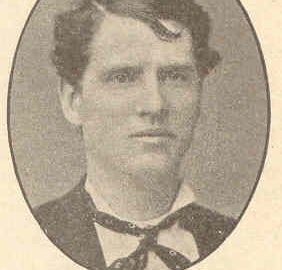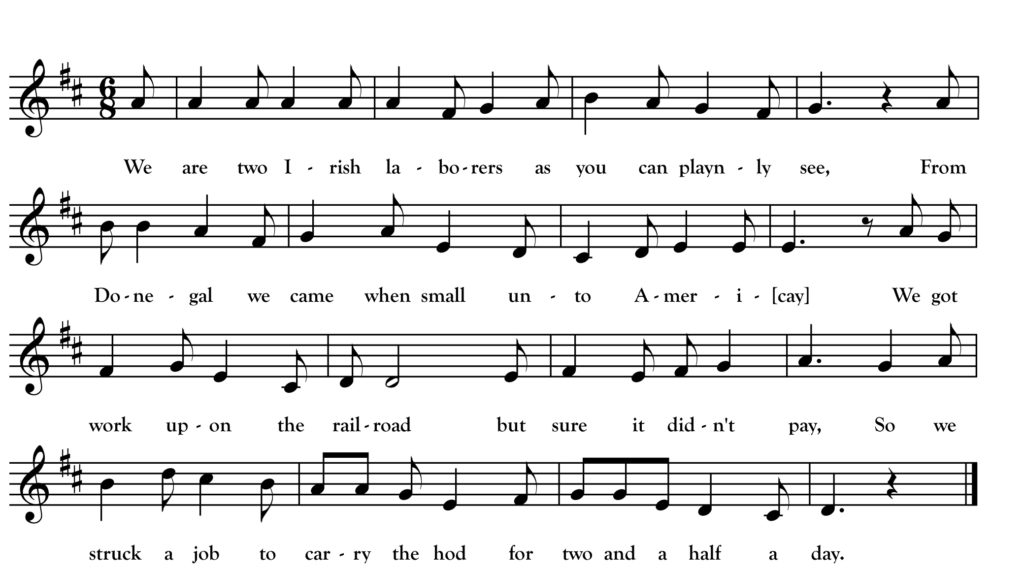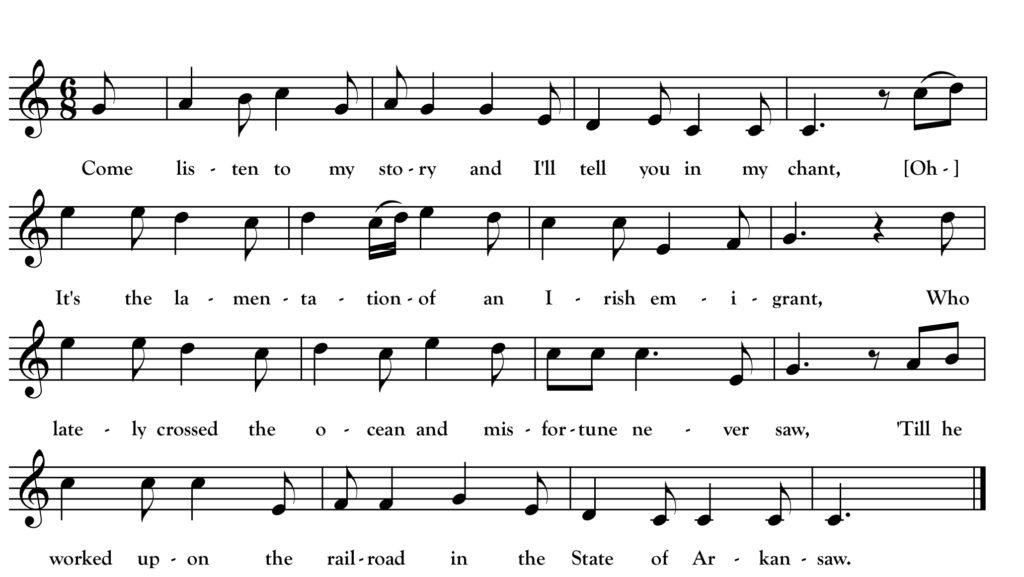Two Irish Laborers


We are two Irish laborers, as you can plainly see,
From Donegal we came when small unto America;
We got work on the railroad, but sure it didn’t pay,
So we struck a job to carry the hod for two and a half a day.
Chorus-
Pat, be quick, bring up the brick, the mortar, too, likewise,
Then push along and sing a song as up the ladder you rise;
I always thought it bully fun to be a mason’s clerk,
And have the man on top of the house for to do all the work.
When we go back to Ireland, that dear old Emerald Isle,
Where the stranger finds a welcome and is greeted with a smile,
Then if you ever want a friend you needn’t try too hard,
You’ll always find one in the Irish boys that carried the hod.
A hod is a box with only three sides (imagine three walls of a cube that meet at a corner with the rest of the cube removed). Often mounted at the end of a stick, it is used to carry bricks or mortar during construction work. The image of Irish immigrant men as “hod carriers” was a recurring trope on the American music hall stage in the late 1800s and that’s where this song seems to have originated. However, the text above comes from Minnesota singer Michael Dean who, like other singers in the woods tradition, had a repertoire that freely mixed music hall songs with come-all-ye ballads and other song types. I have not come across “Two Irish Laborers” in any other collections so it may have been rare in tradition. Dean also sang “When McGuiness Gets a Job” which also references the hod (“he’s the boy that can juggle the old three-cornered box”). “McGuiness” originated on the stage and turns up in song collections from the Catskills and Prince Edward Island.
Thanks to some online newspaper archive sleuthing, I was able to connect “The Two Irish Laborers” to an influential 19th century song and dance man named Dick Carroll. In April, 1924, The Brooklyn Standard Union ran a full page feature titled “Harking Back to the Good Old Days” in which one reader contributed this reminiscence: “In 1873, Dick Carroll, as the hod carrier, in his specialty of ‘Mortar and Bricks’ sang ‘Arrah, Pat be Quick Bring Up the Brick and the Mortar Too Likewise.’” According to Monarchs of Minstrelsy Carroll was born in New York City in 1832 and began performing publicly as a child before having a long career in minstrelsy and, later, the variety stage. He was known primarily as a dancer and Ryan’s Mammoth Collection even includes a tune called “Dick Carroll’s Clog.” “Mortar and Bricks” was his showpiece for many years.
With no luck finding a melody used by Dean or Carroll, I opted to borrow a melody sung by J. Molloy of St. Schott’s Newfoundland for another music hall song, “How Paddy Stole the Rope,” that has a similar opening line. Molloy’s unique and satisfying melody can be heard online via Memorial University’s fantastic digital collection “MacEdward Leach and the Songs of Atlantic Canada.”



